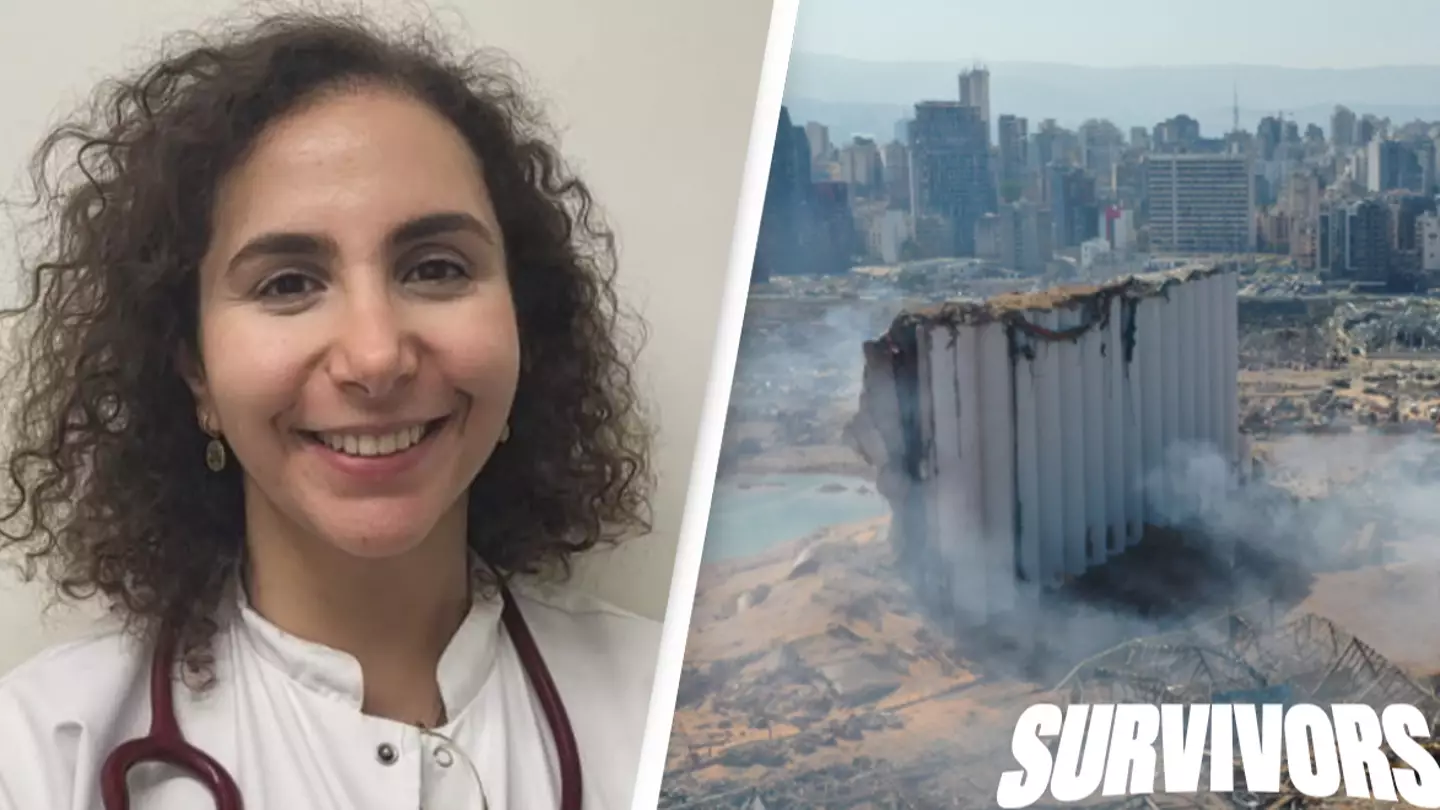
For many in Lebanon, the events of August 4 2020 were the death blow to an already dying country.
Shortly after 6pm on August 4 2020, Beirut would be rocked by one of the largest non-nuclear explosions in history when a consignment of 2,750 tonnes of ammonium nitrate being stored in the port detonated.
Buildings and lives were torn apart and Beirut was showered with broken glass as the blast blew out windows miles from the epicentre.
The shockwaves from the explosion were powerful enough to clear the sky above the stricken city, and were felt across the sea in Cyprus.
Advert
218 people were killed, including all of the firefighters who went to their deaths when they dutifully answered the call to a fire at the port.
'This is the feeling of death'
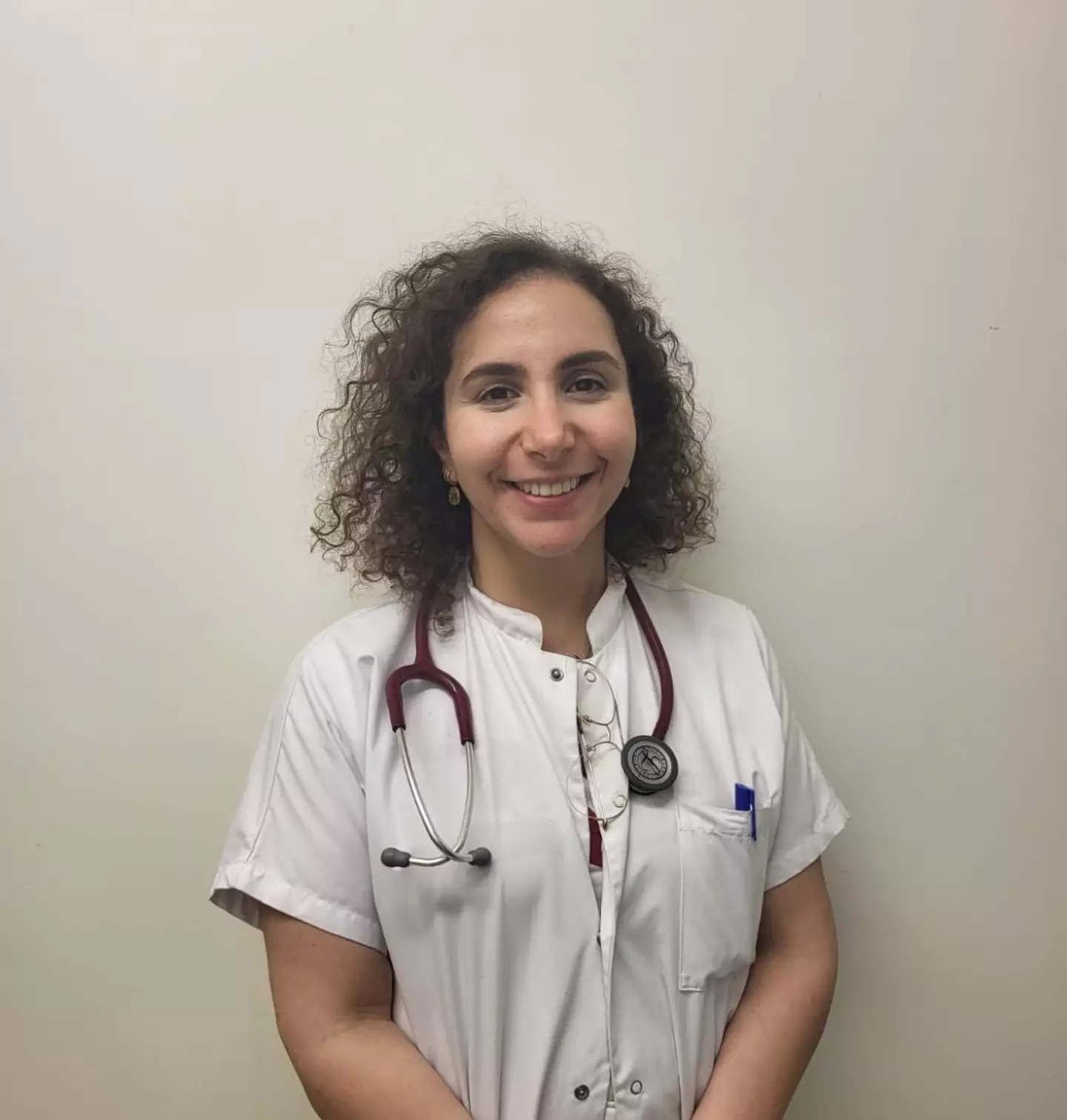
Cardiologist Rita Badaoui had been working at Saint George University Hospital near to Beirut’s port. After finishing her shift at around 5.30pm she went to the library to study for a while to avoid the rush hour traffic.
The library had a window and terrace which overlooked the port, and Rita saw the fire while studying.
“I remember around maybe 5:45 or 5:50 I started seeing the smoke from the port,” Rita told UNILAD. “There were huge, billowing clouds of smoke coming out of the port at around 6.
“Something that marks me to this day was the huge amount of birds flocking out of that area.”
Nearly four years on, investigators have still not been able to confirm exactly how the fire in the port started. Many eye witnesses reported seeing sparks like fireworks erupting from the blaze as it belched out smoke.
“There was a deafening silence in the beginning, and it seemed like something actually forced us all to the window,” Rita said.
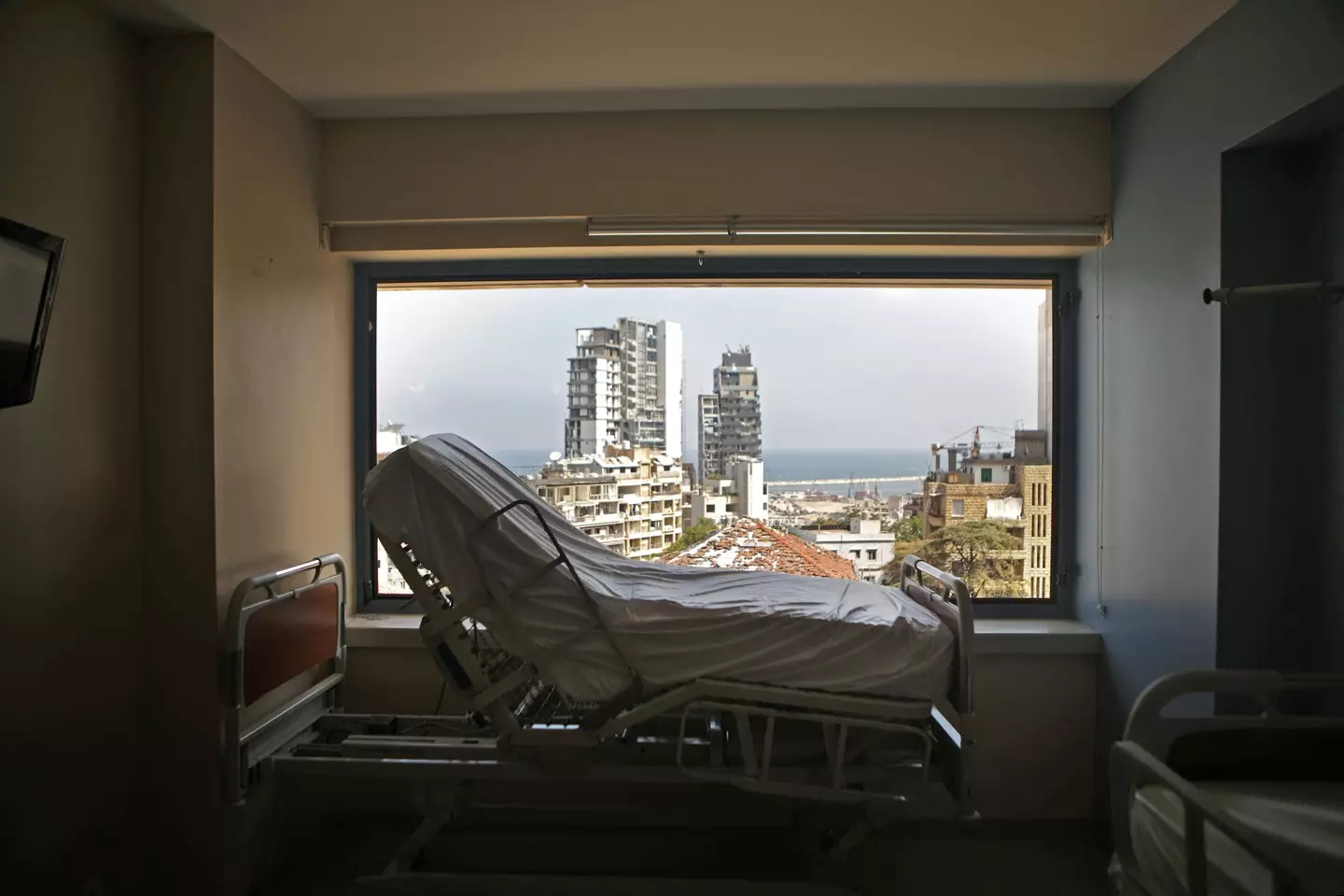
“We all rushed to the windows to look what was happening because something was really strange. The silence, the darkness of that day, of that moment.
“And then I remember just flashing light, really huge light and noise. I remember being blown out of the way to another room right behind me.”
Rita recalled being covered in rubble from the walls and ceiling.
“I'm not gonna say it was painful,” she said. “I thought that this is the feeling of death. I felt something super cold on my face. It was actually my blood.
“I asked the colleague that I saw who was in that room ‘are we dead?’ and he said ‘I don't know’. I remember that thought ‘if I'm dead, I want to be one piece', just for my family and my parents to be able to bury my body and not bury 10,000 pieces.
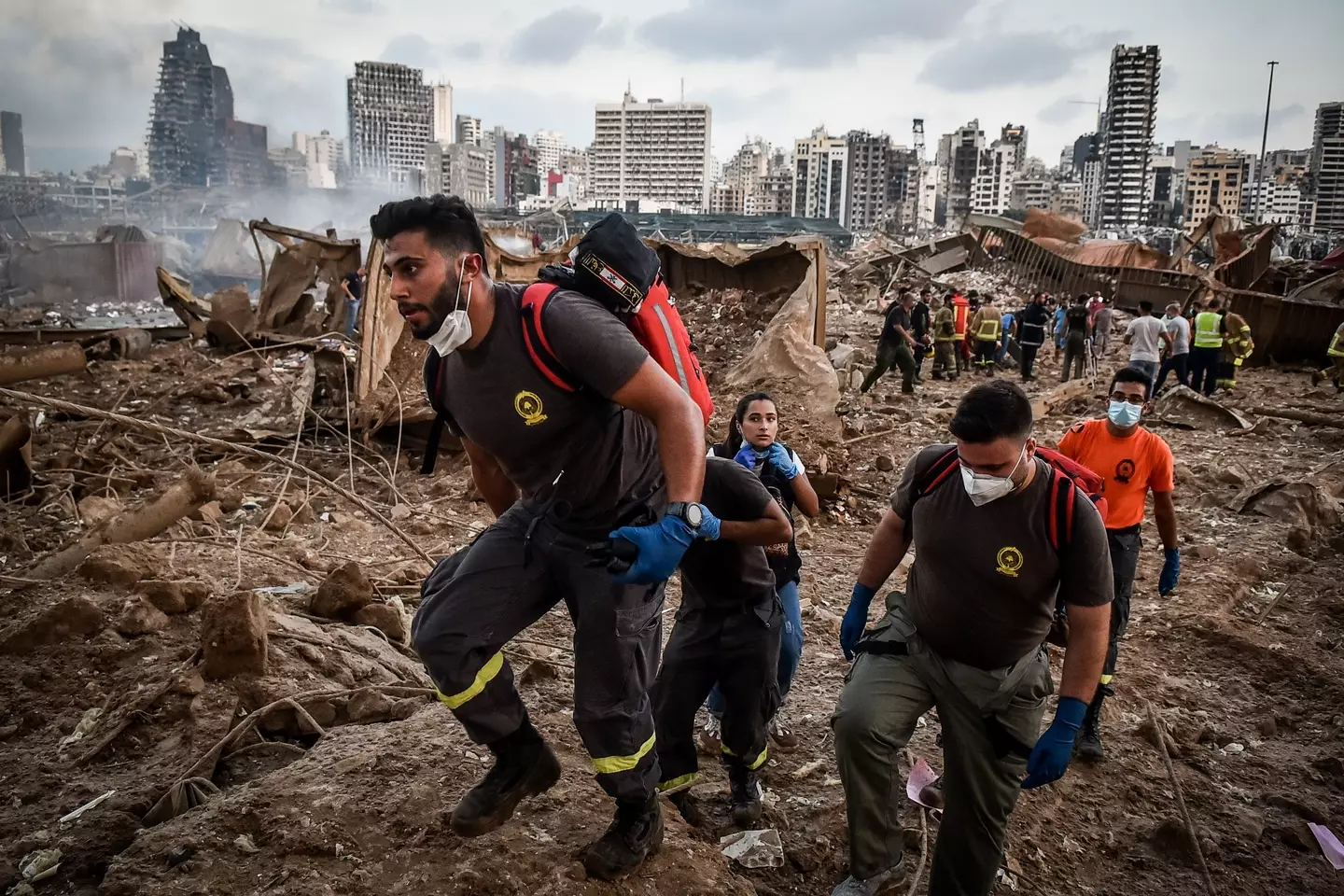
“The only way out was a door, but that door did not exist anymore. In fact, all that was did not exist anymore.”
Rita and her colleague were able to get out of the building and make their way onto the street. Debris and ash from the explosion still clouded the air.
“When we went out there was this very weird orange hue everywhere,” said Rita. “We couldn't see the sky. You couldn't breathe.”
The pair were able to make their way to the hospital, only to find that there was little left of it. Rita said: “The hospital was blown out. The emergency room did not exist anymore. I started seeing the patients on the floor outside of the ER.”
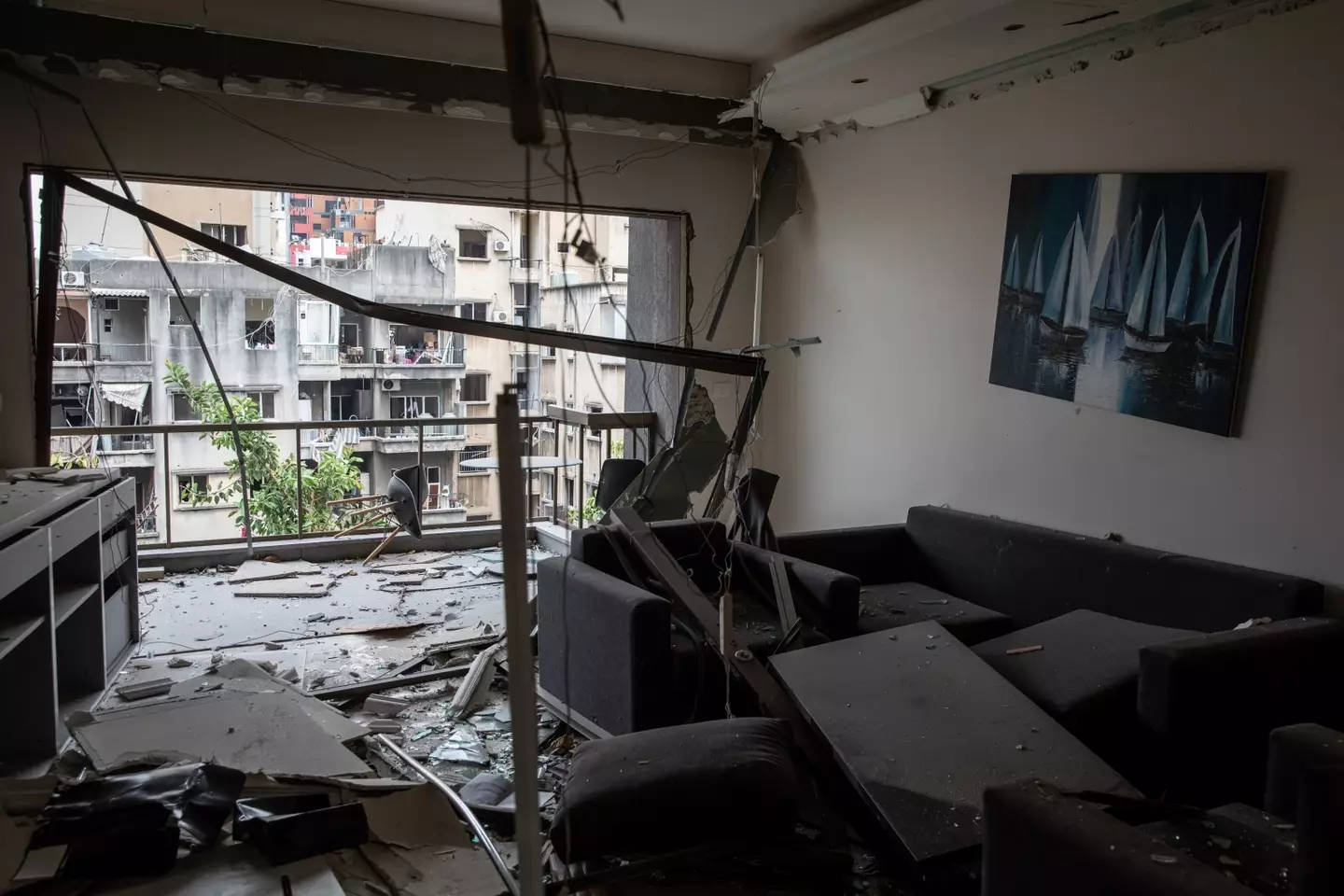
Rita sustained injuries to her head as well a torn ligament, but still helped out in the hospital. She was one of many people who came together after the catastrophe to provide what help they could to each other.
One encounter cemented the magnitude of the explosion to Rita as she and colleagues tried to send patients to other hospitals in any vehicle they could flag down.
“There was this guy driving this DHL minivan,” she said. “I ran to the guy like, stop, please, we have a lot of injured people that need urgent transportation to a hospital. And he told me, sorry, I have bodies in my truck.”
The aftermath
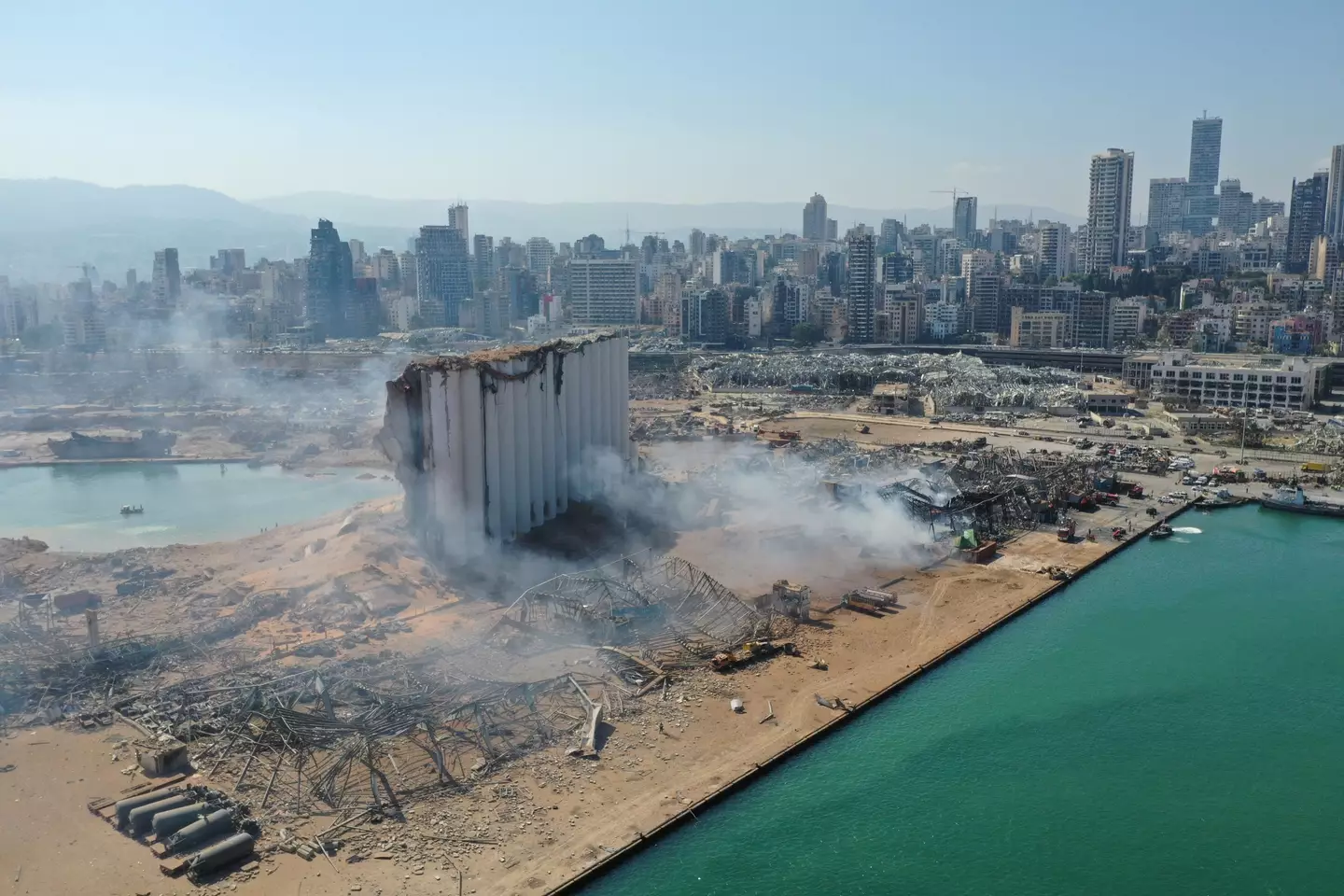
Rita later made the decision to leave, like many Lebanese people, and moved to Marseilles in France where she has lived since.
For many people in Lebanon the explosion came to represent a final, ultimate expression of the indifference and cheapness with which the political class views their lives.
Lebanon and its people have often been described ‘strong’ and ‘resilient’, having survived so much.
In her book All She Lost about the aftermath of the explosion, Lebanese journalist Dalal Mawad calls this a ‘myth’, writing: “Resilience implies overcoming a misfortune, rebuilding a country around sane and healthy principles, finding solutions, freeing oneself from an oppressor, adapting but to better conditions. Instead, the Lebanese are just adjusting to an impossible way of life, unable to create better alternatives.”
For Rita those words used to give her hope, but now only bring anger.
“‘Strong’ and ‘resilient’ - I hate these words,” she said. “I used to see them see them as something very positive, now I don't like them at all.
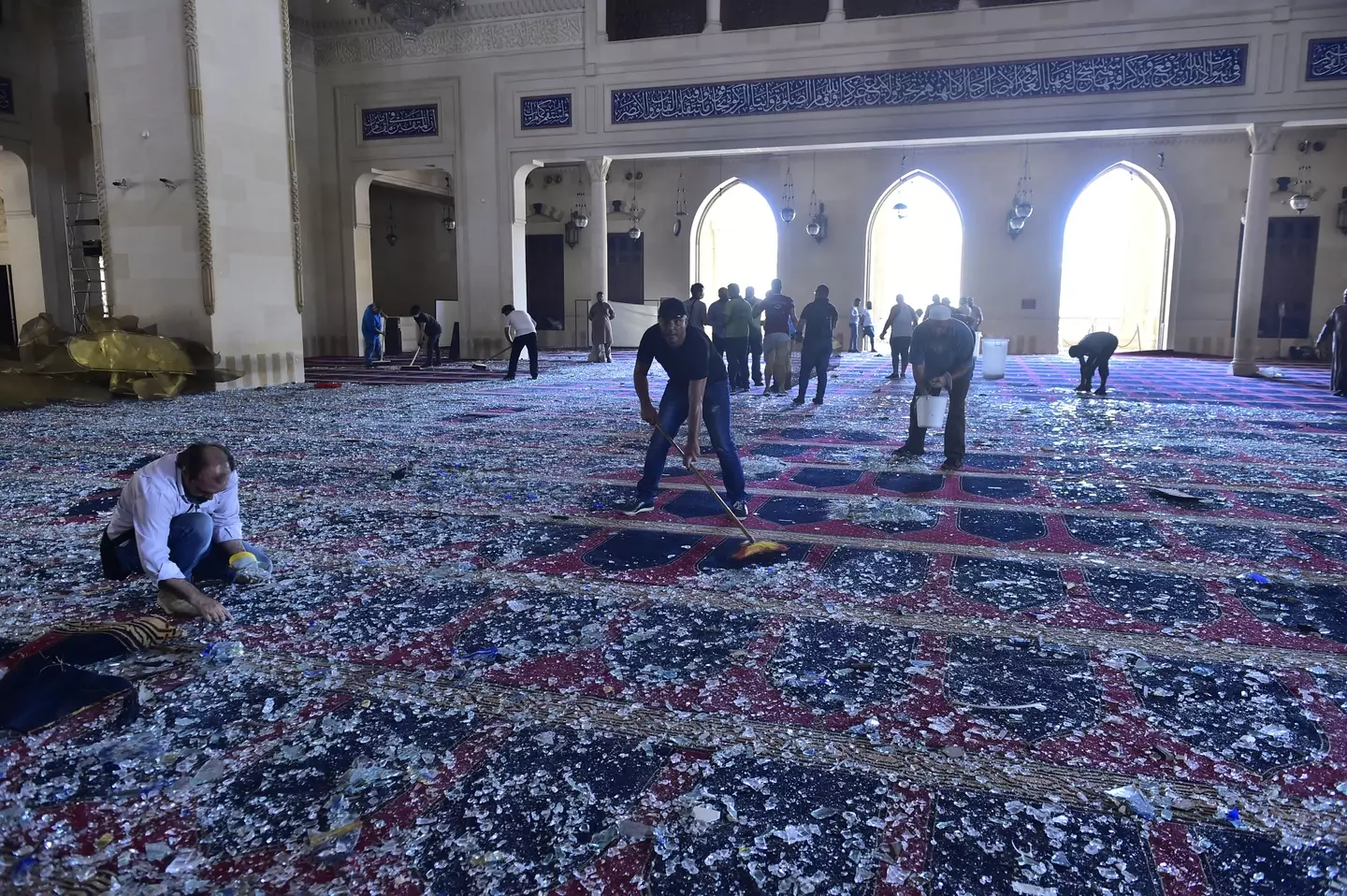
“We had months of hell. We stood in lines to fill your car with gas, and then there was inflation, and then the banking crisis, we lost all our money. Already we were a dying people, and then they came and they blew us up. So no, it's not resilience. We have no other option.”
The explosion and subsequent investigation did more than physical damage, they destroyed any sense of pride Rita had previously felt.
She explained: “Four years ago there were barely any female cardiologists in Lebanon. I was really proud that I had achieved that. The explosion and everything that happened took that away from me.
“I was proud to go back to Lebanon as a female cardiologist and serve my community there. Now, I do want to go back, but it's for my parents and for my family.”
Rita explained why she wants to return, despite everything: “It's very sad that my parents are in Lebanon, my brother doesn't live there anymore. I feel it's very unfair that most of the people my age, most of the Lebanese youth I mean, don't live in Lebanon anymore. We leave our parents there.”
No justice – just survival
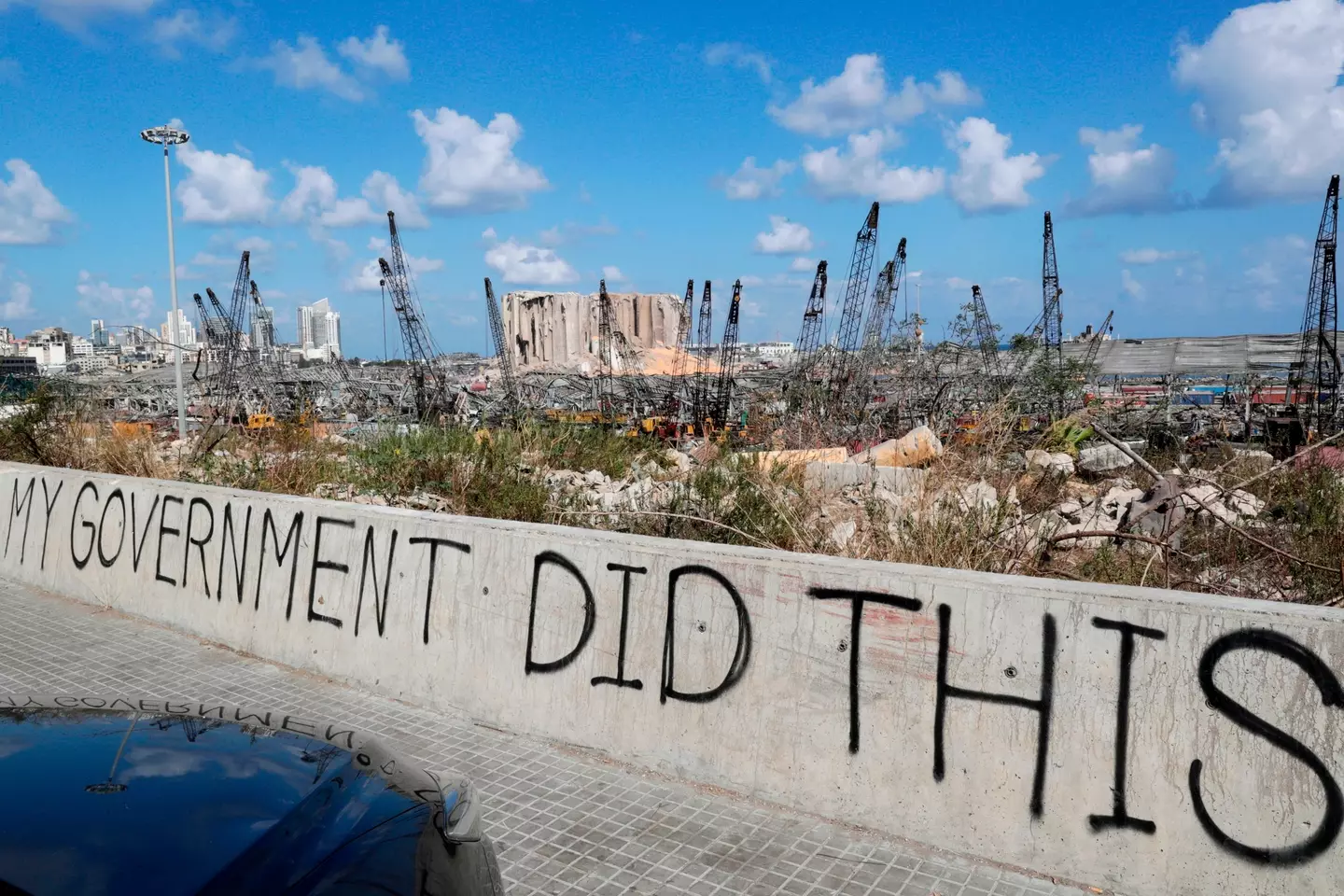
Justice in Lebanon is hard to come by. Nonetheless, Rita said that at first she had some hope that the international community might help. A visit by French president Emmanuel Macron after the explosion created a fluttering of optimism, but ultimately achieved little.
Prior to the events of August 4, life in Lebanon was already difficult. Intermittent covid lockdowns were in effect and the country was plagued by perennial power outages. Even before the explosion Lebanon’s state power grid provided only a few hours of electricity a day, forcing those who could afford it to purchase price-gouged subscriptions to private generators.
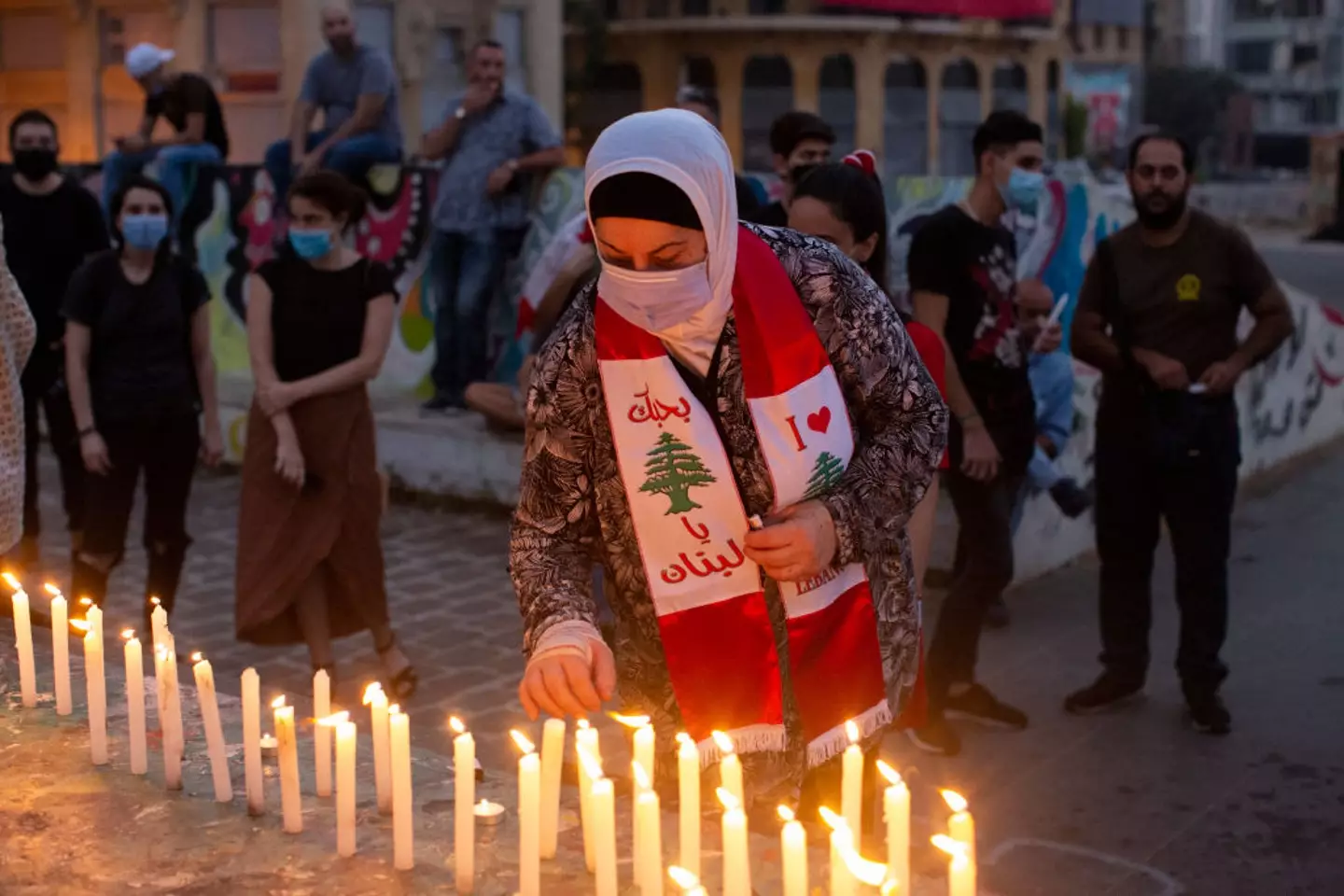
The previous two years had also seen Lebanon plunged into a series of economic crises. A run on the banks had wiped out many people’s life savings and saw the country’s already struggling currency plummet in value while inflation rocketed. People queued for hours for food and fuel, and banks refused to let people withdraw their own money.
In 2019, an enormous wave of protests engulfed Lebanon. Although prime minister Saad Hariri, the son of former prime minister Rafic Hariri, did resign, Lebanon’s political class - including Iran-backed Hezbollah remain largely beyond meaningful accountability.
It's clear that there is no help coming from within Lebanon. Now, Rita no longer thinks there is any help coming from outside either.
She said: “Recently, especially with all the events in Gaza, I know that the international community doesn't really care about my part of the world.”
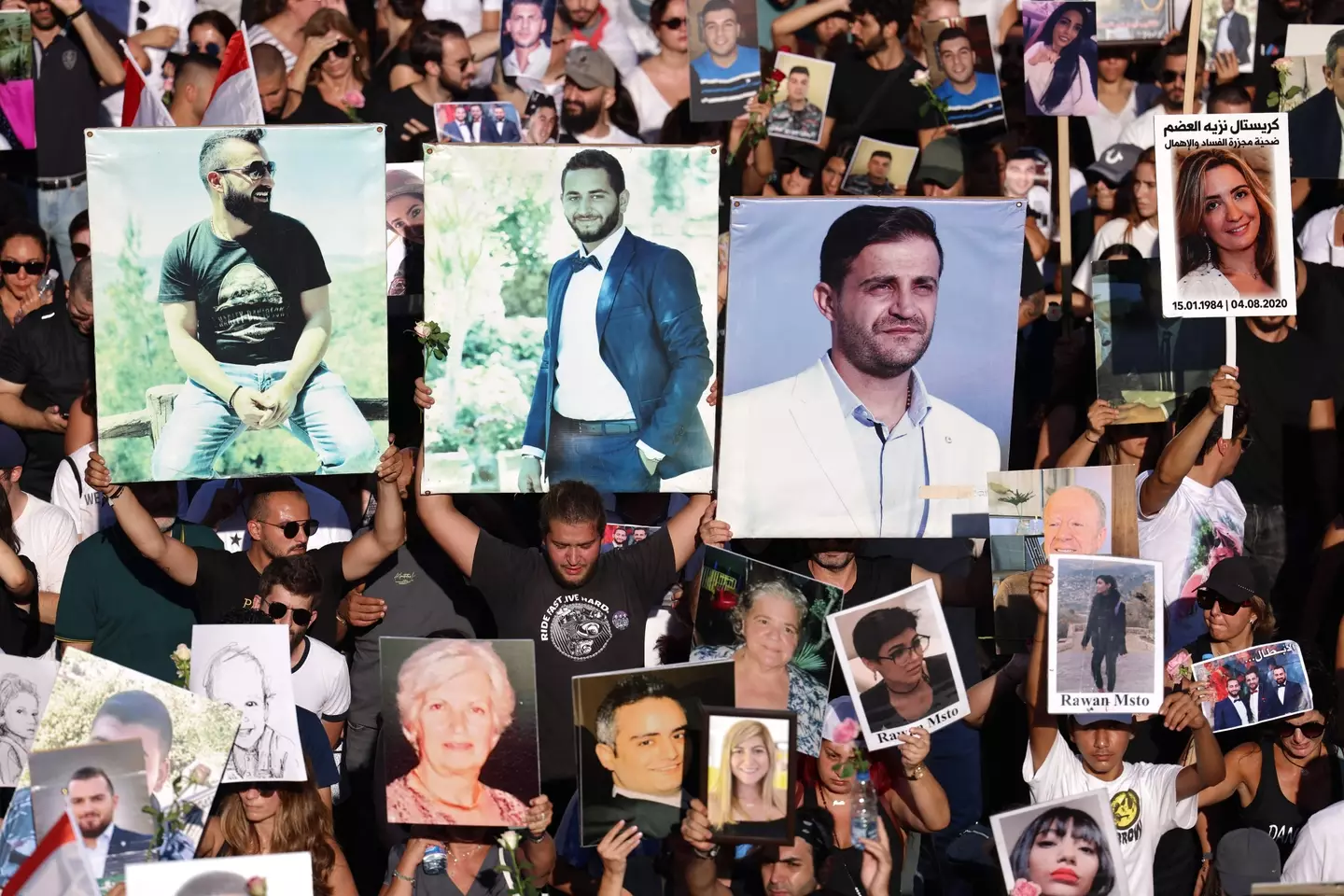
Explaining what being confronted with death would lead her to advise others, Rita said: “Any normal day, a normal random Tuesday afternoon, can turn into your worst nightmare. I don't take anything for granted anymore.”
Any grand notions of justice for the victims of the explosion are gone. For many, all that remains is survival and the small victories it can bring.
“I used to always secretly hope that I died,” said Rita. “It would have been so much easier for me to have died that day. I know, it's maybe selfish to say.
“You try to make the best of your life. We didn't die that day. We have to survive, it means we have to just try to make our lives a bit better.”
UNILAD’s Survivors series sheds light on different survival experiences and the lessons learned from facing death. New interviews are being released daily beginning May 20.
Topics: News, World News, Politics, Mental Health, Health
